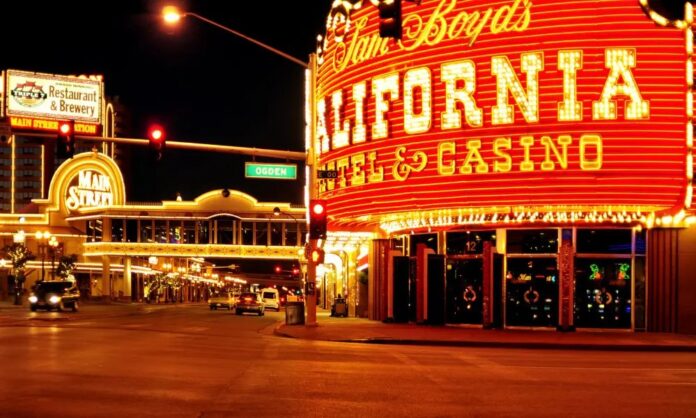Boyd Gaming’s Robust Performance in a Challenging Market
Neighborhood vs. Strip: A Clear Distinction
In a recent update to Wall Street analysts, Boyd Gaming outlined a notable disparity between the fortunes of neighborhood casinos and those on the iconic Las Vegas Strip. While the Strip is grappling with fewer visitors and dwindling hotel occupancy, Boyd’s local properties continue to thrive. This distinction reflects broader trends in the gaming and hospitality sector, where local demand appears more resilient compared to the international tourist traffic that characters the Strip.
Second Quarter Earnings: A Strong Upswing
Boyd Gaming recently released impressive second-quarter earnings, revealing that the Las Vegas locals segment achieved its strongest quarter in over two years. This is not merely a statistical footnote; it signifies a surge in both revenue and adjusted EBITDAR (Earnings Before Interest, Taxes, Depreciation, and Amortization), with segment margins approaching a remarkable 50%. Such performance indicates a robust recovery for local gaming during a phase of economic uncertainty.
A Strategic $1.755 Billion Deal
In a strategic move, Boyd announced its decision to sell a 5% stake in FanDuel Group to its parent company, Flutter Entertainment, for an astonishing $1.755 billion in cash. This deal not only strengthens Boyd’s financial standing but also extends its market-access agreements for mobile sports betting and online casinos through 2038. As part of the agreement, Boyd will reclaim the operation of its retail sportsbooks outside Nevada by 2026.
Debt Management and Future Investments
The impending transaction is expected to close in a matter of weeks, with Boyd planning to leverage the proceeds to offset debt. This financial maneuver is pivotal; with post-tax proceeds expected to be around $1.4 billion or $17 per share, Boyd anticipates saving approximately $85 million in interest payments. Such savings will enhance the company’s financial flexibility, allowing for further investments in its properties and potential growth opportunities.
Valuation and Growth Opportunities
Keith Smith, President and CEO of Boyd Gaming, emphasized the significance of the transaction, noting that a relatively modest $10 million investment has transformed into nearly $2 billion in value for shareholders. This remarkable return underscores Boyd’s acumen in navigating the volatile gaming industry. Analysts inquired about the cash generated by the transaction, eager to understand how it might facilitate further mergers and acquisitions.
Despite the enthusiastic discussions surrounding the FanDuel sale, Smith clarified that it shouldn’t be perceived as a precursor to more deals. Rather, he views it as an opportunity for Boyd to focus on future growth and enhance its existing operations.
Second Quarter Performance Highlights
Turning back to the second quarter of 2025, Boyd reported a 4% increase in revenue and adjusted earnings. This growth can be attributed to widespread positives across their various operational segments — encompassing both online and managed environments. However, properties like The Orleans, which rely heavily on tourist traffic, experienced difficulties.
Smith expressed confidence in the local economy and the future of their neighborhood business, suggesting that while certain segments are struggling, the overall trajectory remains optimistic.
Market Trends and Customer Behavior
In the downtown area, Boyd noted that last year’s second quarter benefited from a surge in demand from Hawaiian customers. For the first half of 2025, revenue and adjusted earnings increased by more than 1% compared to the same period last year. Meanwhile, Boyd’s properties in the Midwest and South are also showing promising signs, with quarterly revenue and adjusted earnings reaching a nearly three-year high, bolstered by resilient customer demand.
Hirsberg, Boyd’s Chief Financial Officer, highlighted an uptick in business from local customers as the pandemic-related restrictions eased. Moreover, he remarked that the second quarter’s success was driven largely by this local patronage, which has become increasingly vital to the company’s revenue streams.
The Drive for Sustainable Growth
Looking ahead, Hirsberg indicated that while the recent customer patterns appear favorable, Boyd is cautious about labeling them as a permanent change. Further assessment over the next few quarters will be necessary to gauge sustainability in customer behavior and demand.
The overall narrative surrounding Boyd Gaming showcases a company skillfully navigating an evolving landscape, where local engagement is not only key but is rapidly becoming the backbone of its business strategy. As the company continues to respond to shifting dynamics, their focus on enhancing local customer experiences and operations may well define their path forward in the competitive gaming industry.
